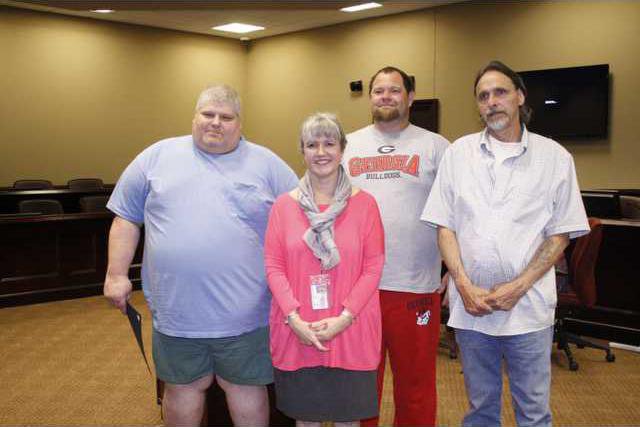Looking back 24 months ago, Paul Watson can now admit his life was spiraling out of control.
"I was in pretty bad shape. I had a lot of anger issues," he said. "I went through the AA program, but six months after, I was back out drinking."
For Watson, his problems stemmed from a bipolar disorder diagnosis, and like many patients in similar shoes, he was facing jail time for actions caused by the disease.
"I could have probably got probation, but I wanted the program," he said.
On Thursday, Watson was among the first graduates of a voluntary program for defendants that would not be in the criminal justice system if it wasn't for their mental illness.
Established in 2013, Dawson County's H.E.L.P. Program (an acronym for health, empowerment, linkage and possibilities) is a special docket of the Superior Court designed to provide an alternative to incarceration for individuals living with mental illness.
While completion of the program does not promise a reduction in criminal charges, participants are provided with the help and advocacy they need in all areas of their lives in order for them to lead a more stable and independent life away from the criminal justice system.
"It's amazing what this program has done for me," Watson said. "I've grown so much in the last year and a half. I'm a totally different person."
His 20-year-old daughter is also singing the program's praises.
"I used to not look up to my dad. We lost so many years of my life, and now it just feels so good to have my family back," Kelsey Watson said.
Rebuilding his family was also a goal for graduates Ralph Scroggins and Daniel Pirkle.
"My family enjoys being around me now," said Scroggins, who before entering the program had not been sober in 42 years, since he was 12-years-old.
The program also helped renew Pirkle's rocky relationship with his wife Jennifer.
Standing with his arms around her, he said the couple is once again happy.
"We get along a whole lot better now. We had a bump in the road back before I started the program," he said. "I lied to her about some things. But we worked it out and this program really helped us a lot. It brought us closer together."
Jennifer Pirkle added: "We have a great family life. We can talk about anything. The program has really helped him be sober, and I'm so proud."

